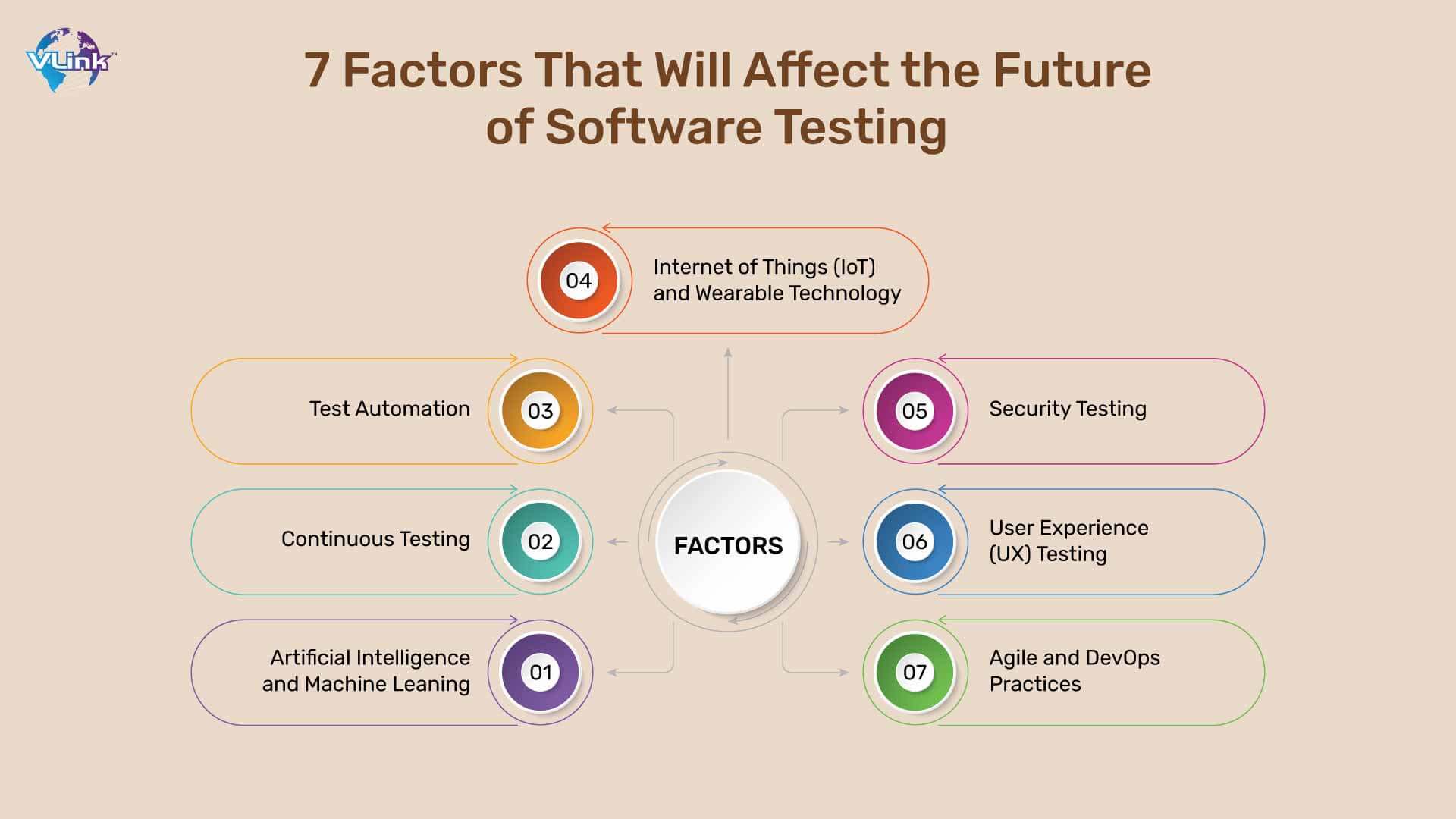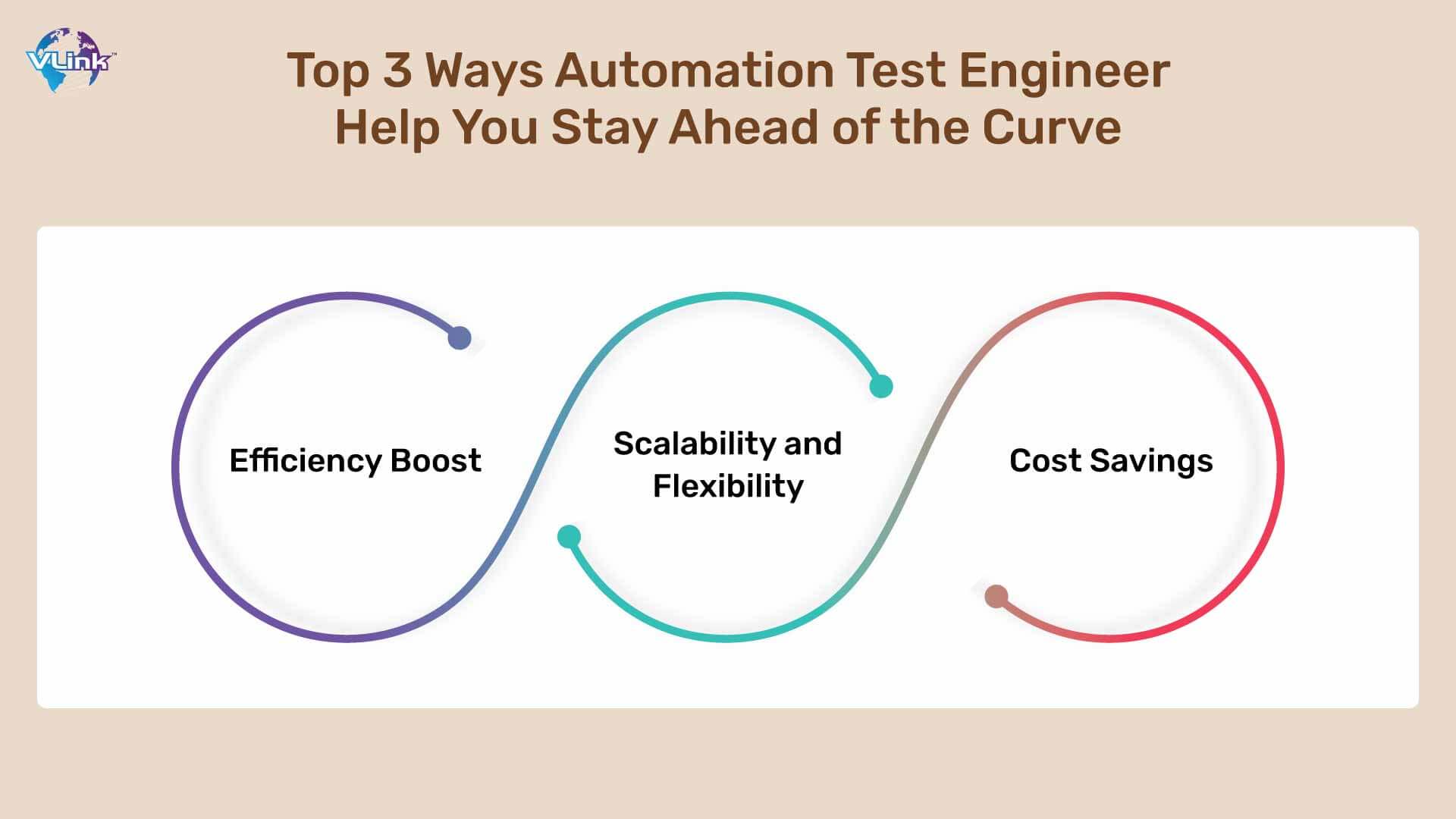Have you ever wondered where software testing is headed in this ever-evolving technical landscape? or thought, how automation test engineers will play a critical role in times ahead?
Well, we will unravel answers to these questions - We will talk about top factors impacting software testing future, convincing reasons to hire automation test engineer, and much more.
Shall we get started?
Evolution of Software Testing
From simple manual checks conducted by developers, software testing has come a long way. It is a crucial part of software development and ensures quality and meeting user expectations using various testing methodologies.
Test automation is a necessity in today’s software development, but concerns about how it might affect release schedules and costs remain.
The need for an efficient testing process is now more pronounced, due to the pressure companies find themselves under to innovate new features quickly.
Today, bespoke test automation tools designed specifically for the needs of a business have become essential if they are to see a measurable return on their investment.
Needless to say, testing practices must be seamlessly integrated with agile development methodologies, for companies to be competitive in this landscape.
7 Factors That Will Affect the Future of Software Testing

- Artificial Intelligence and Machine Leaning
Artificial Intelligence (AI) and Machine Learning technologies are set to transform software testing soon.
Test automation is only the beginning. With AI and Machine Learning, testing teams can look forward to predictive analysis to determine the likelihood of any given outcome or the presence of any given condition, and identify patterns that lead to software defects with unparalleled precision.
For example, AI-driven testing solutions can adapt test scenarios dynamically based on real-time data analysis, enabling the testing team to prioritize critical areas and allocate resources to those areas more efficiently.
ML algorithms, on the other hand, can analyze historical test data patterns to predict probable problems and recommended refactoring of the script. Every testing organization’s goal is to optimize test coverage and efficiency, and AI has the ability to enable that final outcome.
- Continuous Testing
Continuous testing is already a thing, and it will become a core component of the CI/CD pipeline in the long run, enabling organizations to continuously validate code changes and ensure the delivery of high-quality software at speed.
Through automation, continuous testing supports the execution of an extensive range of tests including unit, integration, regression, and performance testing with minimal human intervention.
Automating the software delivery pipeline and receiving real-time feedback with continuous testing can allow businesses to quickly find and solve errors, delivering true value to end-users with minimal effort.
Organizations can now deliver Faster Time to Market, Improved Product Quality and Enhanced Customer Satisfaction with seamless incorporation of Continuous Testing into their software delivery processes.
- Test Automation
It is no secret now that test automation has become the cornerstone of efficient software testing processes. Not only does automation help organizations achieve higher test coverage, but it also helps bring down time-to-market and enhance overall product quality. Today, advanced automation frameworks and tools support a spectrum of testing activities — right from functional testing and regression testing to UI testing (mobile and web) and AAPI (Application Programming Interface) testing, across myriad platforms/OS, and software environments.
By automating repetitive operations, testers can focus on exploratory testing and deal with tricky scenarios requiring human intelligence— enhancing overall productivity of testing efforts.
AI-driven test automation solutions offer intelligent test case generation and predictive analytics to further improve the effectiveness and scalability of test automation initiatives.
- Internet of Things (IoT) and Wearable Technology
The rise in IoT devices and wearable technology opens a new set of software testing challenges such as interoperability, compatibility, and security considerations.
Testers should adjust their testing strategies to address the complexities of interconnected systems, diverse communication protocols, and real-world usage scenarios found in IoT environments.
Comprehensive testing approaches are functional testing, performance testing, security testing, and compatibility testing on diverse devices, platforms, and networks.
By making sure the reliability, and resilience of IoT and wearable applications, testers can mitigate risks, improve user experiences, and unlock the full potential of these exciting mass market technologies.
- Security Testing
Given the increasing number of cybersecurity threats, security testing is an essential part of software development as well as maintenance today. Not only do testers now use a wide array of methods, from penetration testing and vulnerability scanning to code analysis and threat modeling to identify security vulnerabilities but also do so early in the software development life cycle (SDLC) and even during maintenance iterations.
By integrating security testing earlier in the Software Development Lifecycle (SDLC), it is possible to shore up defenses, maintain compliance with regulatory requirements and safeguard sensitive information from potential breaches. This feature is especially vital in a world where security testing serves to build trust and confidence with users, as well as the reputation and integrity of software products in today’s complex digital landscape.
- User Experience (UX) Testing
User experience (UX) is becoming a key differentiator in today’s competitive software market. Not only does it influence customer satisfaction and retention, but it also drives powerful branding — UX is the public face of your product and the point at which you deliver on customer promises.
UX is tested in a variety of contexts, including web, desktop, and mobile applications, to ensure intuitive and delightful experiences on all devices and platforms.
Testers use a mix of usability testing, user feedback analysis, heat mapping, and performance monitoring. This helps them to find out UX issues, streamline user interactions, and make sure continuous enhancement in product design as well as functionality.
By paying attention to user-centric design principles and valuing user feedback into the development process, companies can develop compelling, user-friendly software experiences that resonate with their target audience and differentiate them from competitors.
- Agile and DevOps Practices
Agile methodologies and DevOps practices are already reshaping the software development and testing landscape, promoting collaboration, automation, and continuous improvement. They are here to stay, and they will further enable and improve software testing.
Also, contributing to this trend is that testers as well as developers are working more closely with operations teams, and other stakeholders to ensure that testing activities are integrated smoothly throughout the development lifecycle.
DevOps practices such as continuous integration, and continuous delivery (CI/CD) enable organizations to achieve faster release cycles, reduce time-to-market, and respond with more agility to changing market demands.
Why You Need to Hire Automation Test Engineers?
Automation test engineers are no longer a choice, but a necessity. They are instrumental in integrating modern tools and frameworks to automate the repetitive testing processes, e.g., regression testing, performance testing, etc. Their scripting language expertise, testing frameworks, and knowledge of continuous integration tools are employed to simplify testing pipelines, and to trim the release cycle. This, in turn, improves overall software quality.
They foster the adoption of DevOps practices and the implementation of continuous testing strategies, supporting organizations to achieve rapid time-to-market and maintain a competitive edge in today’s rapidly evolving marketplace.
Their unique skills and experience help teams to innovate, drive efficiency, and produce software solutions of the highest quality to satisfy the appetites of modern businesses and end-users alike.
Let us find more reasons to hire automation test engineers in the next section!
Top 3 Ways Automation Test Engineer Help You Stay Ahead of the Curve

Take a look at the top five ways an automation test engineer empowers your team to meet future requirements:
- Efficiency Boost
It is no secret that as automation test engineers automate time-consuming testing tasks, they greatly improve overall efficiency as well.
Without any doubt, automation frees a lot of time for testers to focus on other more complex and vital areas of software testing.
They optimize test execution and overall productivity with the help of automating tools and frameworks. This efficiency increase allows teams to deliver high-quality software much quicker and more efficiently, staying with evolving market demands and customer expectations.
- Scalability and Flexibility
Scalability is yet another area in which automation test engineers can excel, offering the flexibility to adapt to changing testing needs and project dynamics.
They design and implement automated test scripts that are modifiable and reusable when needed and can be scaled along with the introduction of new features, enhancements, or changes in testing objectives.
The benefit of scalability is that testing efforts remain both effective and efficient — irrespective of how large, complex, or dynamic a given project may be.
In addition, these professionals can design and implement automated test scripts that are easily modified to execute on multiple platforms, devices, or environments. This allows for comprehensive test coverage and — more importantly — enables seamless integration with DevOps and agile practices.
- Cost Savings
In addition, automation test engineers also contribute to savings in cost through the efficient utilization of resources, reduction of manual effort, and the minimization of defects in production by automating testing processes This, in turn, diminishes the need for manual intervention in testing, and in turn significantly reducing labor costs as well as human errors.
Adding to this, automation test engineers identify and fix errors early in the development lifecycle, when they are less expensive to address. This not only avoids costly rework, but delays in product delivery.
In conclusion, the cost savings achieved with automation enables organizations to strategically allocate resources, invest in innovation, and remain competitive in the marketplace.
Hire Automation Test Engineers with VLink
Automation testing engineers are a critical part of the software testing industry of today and tomorrow.
You cannot afford to not hire them; by not hiring them, your organization will fall behind in today’s competitive landscape.
VLink has industry experience and has been sourcing top-tier testers that allow you to source the top 3% automation testers.
With VLink, a team is dedicated to providing pre-vetted suitable automation testers for your particular project requirements.
Now you can leverage the capabilities of automation testers to release high-quality software products to meet the evolving market demands.
Frequently Asked Questions
Test automation developers, also called test automation engineers, are proficient software developers who create specialized programs to test the new and existing software. Their role is integral to the software development cycle, as they ensure the reliability, functionality, and quality of the software being developed.
Automation test engineers must have these skills including analytical thinking, familiarity with programming languages, functional testing, and test script development. In addition to this, a clear understanding of business requirements is essential. A test engineer also must have knowledge of Agile, DevOps and continuous delivery methodologies. Communication and collaboration skills are also important.
In the year 2024, automation testing will remain in high demand to help improve productivity, scalability, and reliability of software testing. This is certainly because more companies are now adopting agile and DevOps practices and prioritizing automation for software testing to support shorter release cycles to meet the demand for high-quality software.








